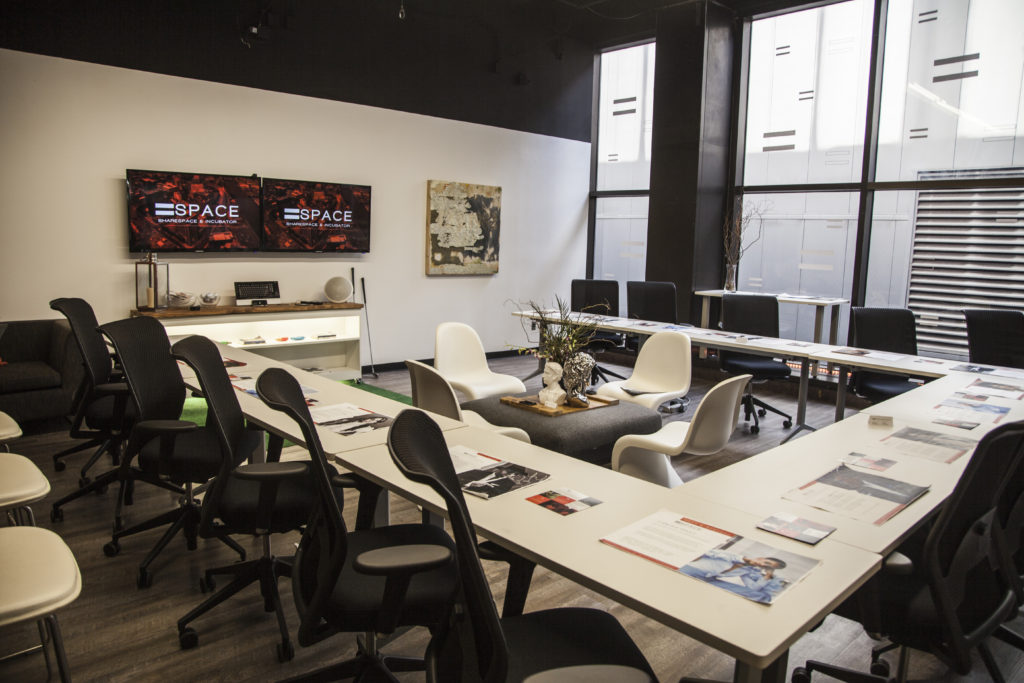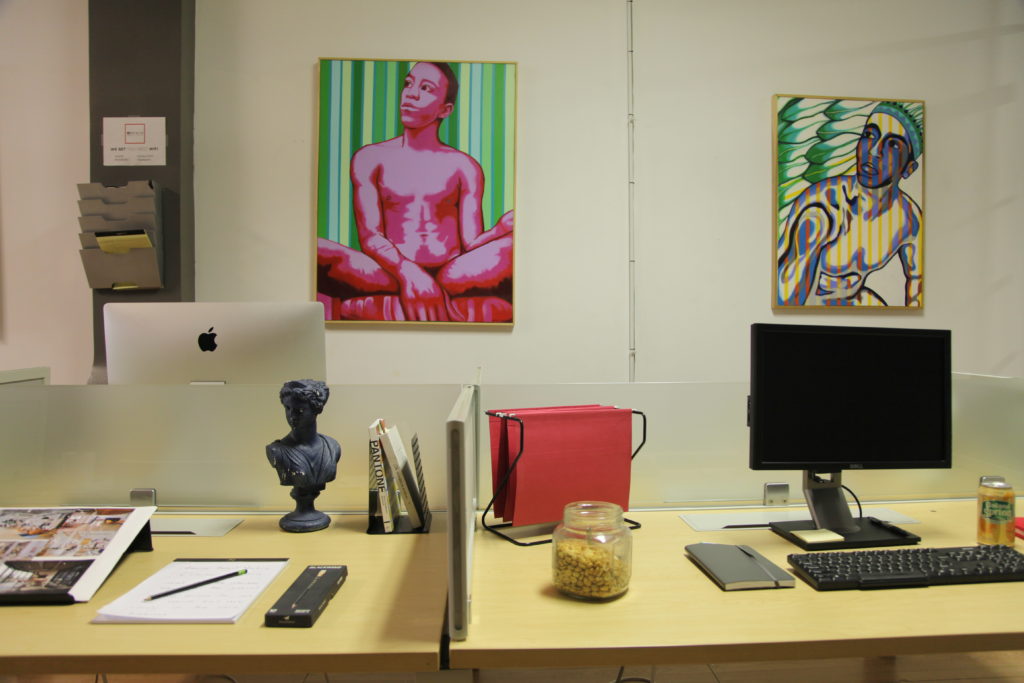Remote work is becoming increasingly popular, but not everyone wants to work from home. Sitting in the house leaves too many distractions. However, coffee shops have an equal number of variables that impede a consistent workflow. This is why we need co-working spaces.
Yes, you read that correctly.
Typically, we think “co-working space” and dismiss it as another costly expense. Or, maybe you have the money and see co-working spaces as another place to navigate folks who don’t look like you. What if neither of these concerns were an issue? What if there was a Black-owned co-working space? Better yet, how about a black, brown, and LGBTQ-owned spot where everyone was welcomed, supported, and celebrated? Guess what?

Our prayers have been answered. Medina, a Brooklyn native who grew up in a family where everyone had a side hustle, understood and addressed the need for workspaces catered to people like us. He and a team of fellow black, brown, and LGBTQ entrepreneurs founded =SPACE, a Newark-based shared workspace and incubator.
Launched in 2015 as a pop-up space with set hours, =SPACE is now a multi-campus operation that has been acknowledged by Amazon HQ2 for providing the city with diverse workspaces. Medina sat down with Mogul Millennial to give us the tea on spaces designed with us in mind.

Space is just as important as opportunity.
=SPACE doesn’t only provide a culturally relevant work environment; it also aims to fuel entrepreneurial growth. “It’s a launch space for start-ups led by people of color, women, and LGBTQ founders. We serve the marginalized in every business vertical from brick and mortar to tech start -ups. We want to create access and resources for those communities to validate people verbally, subliminally, and programmatically.”
It’s beneficial to have the space to get something done, it’s even better to have the support.

Waves are made when you connect and grind with those around you.
Prior to founding =SPACE, and every time he looks to expand, Medina runs into investors who question the need for his work and hesitate to fund it. “People doubted that we needed a co-working space for people of color. They would ask, ‘What about WeWork?’ and I would say people don’t feel welcome at WeWork. Whether I was in a suit or a fitted and a pair of jeans I didn’t feel like that was my space to flourish. My partners and I got together and decided to do it ourselves. We’ve had to do it ourselves our whole lives, so we put together the best space we could, put out a post, and the community showed up the same day.”

Spaces that allow us to connect with people who share the same struggles and desires produce unfathomable results that impact our whole community.
Sustainability depends on our willingness to support and learn from each other.

=SPACE is one of many businesses designed for us and by us. If we want to see similar businesses of equal caliber, we all have a role to play. “The Twitter beef between Popeyes and Chik-Fil-A shows we have the capacity to support businesses that support and reflect us even if it’s an extra block. We should choose that institution. By showing our economic power, we show businesses that they should be supporting and investing in us. Rihanna proved that with her sold-out Fenty line.”
Supporting is only half the battle. As stakeholders, we have to give feedback that owners must be open to receive. “Customers that experience Black-owned spaces who feel it doesn’t have the same amenity as a WeWork, [should] have a collaborative conversation with the owner. Give feedback about what was strong and what you would love to see in the next step. Owners have to be able to accept that.”

If you aren’t in the Newark area, =SPACE has long-term plans of expanding to every major city. In the meantime, find and connect with the businesses in your area that are for us and by us.

